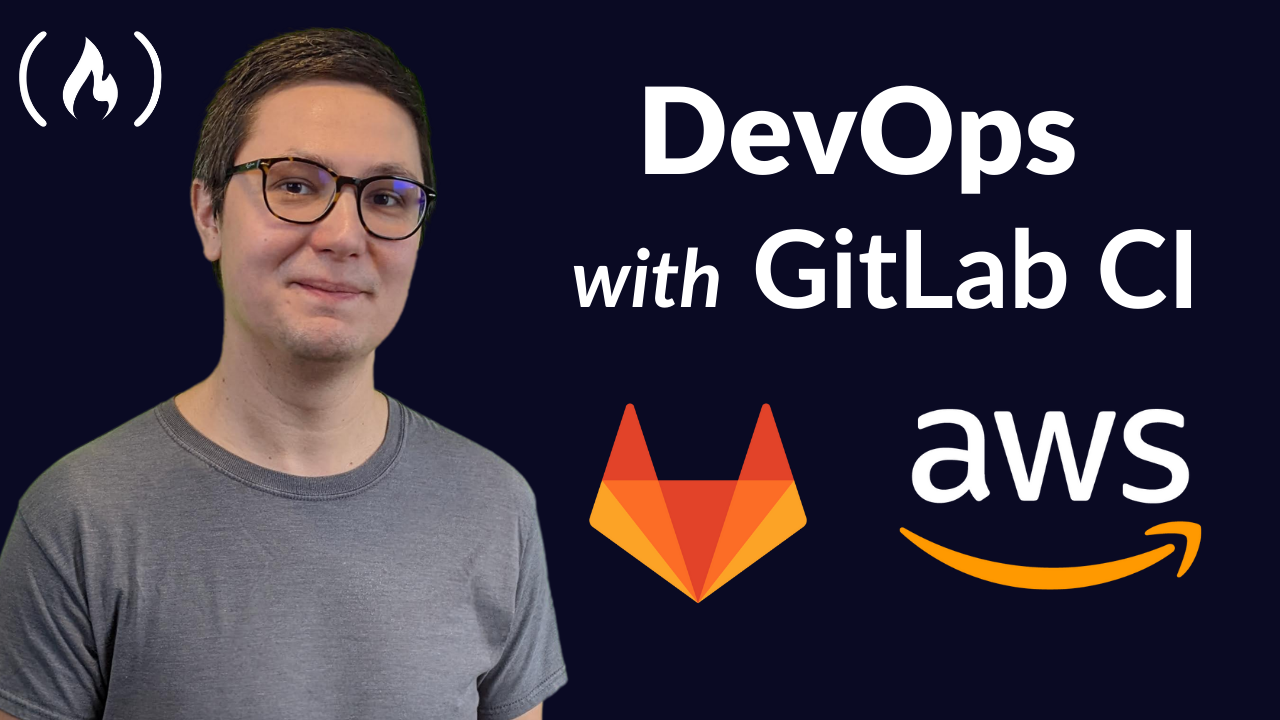GitLab CI/CD can automatically build, test, deploy, and monitor your applications.
We just published a full course on the freeCodeCamp.org YouTube channel that will teach you how to use GitLab CI.
Valentin Despa developed this course. Valentin is an experienced developer and course creator.
In this course, you will learn how to use GitLab CI to create CI/CD pipelines for building and deploying software to AWS.
Here are all the sections covered in this course:
Unit 1: Introduction to GitLab
- Welcome
- Your first GitLab project
- Your first pipeline
- Help, my pipeline is not working
- What is YAML?
- What is a shell?
- GitLab architecture
- Pipeline stages
- Why do pipelines fail?
- Job artifacts
- Testing the build
- Variables
- What is DevOps
Unit 2: Continuous Integration with GitLab CI
- Unit overview
- Your first GitLab project
- Building the project
- Assignment
- Assignment solution
- How to integrate changes?
- Merge requests
- Code review
- Integration tests
- How to structure a pipeline
Unit 3: Continuous Deployment with GitLab & AWS
- Unit overview
- A quick introduction to AWS
- AWS S3
- AWS CLI
- Uploading a file to S3
- Masking & protecting variables
- Identity management with AWS IAM
- Uploading multiple files to S3
- Hosting a website on S3
- Controlling when jobs run
- Post-deployment testing
- What is CI/CD?
- Assignment
- Assignment solution
- Environments
- Reusing configuration
- Assignment
- Assignment solution
- Continuous Delivery pipeline
Unit 4: Deploying a dockerized application to AWS
- Unit overview
- Introduction to AWS Elastic Beanstalk
- Creating a new AWS Elastic Beanstalk application
- Creating the Dockerfile
- Building the Docker image
- Docker container registry
- Testing the container
- Private registry authentication
- Deploying to AWS Elastic Beanstalk
- Post-deployment testing
- CI/CD recap
Unit 5 Conclusion
- Final assignment
- Conclusion
Watch the full course below or on the freeCodeCamp.org YouTube channel (5-hour watch).
